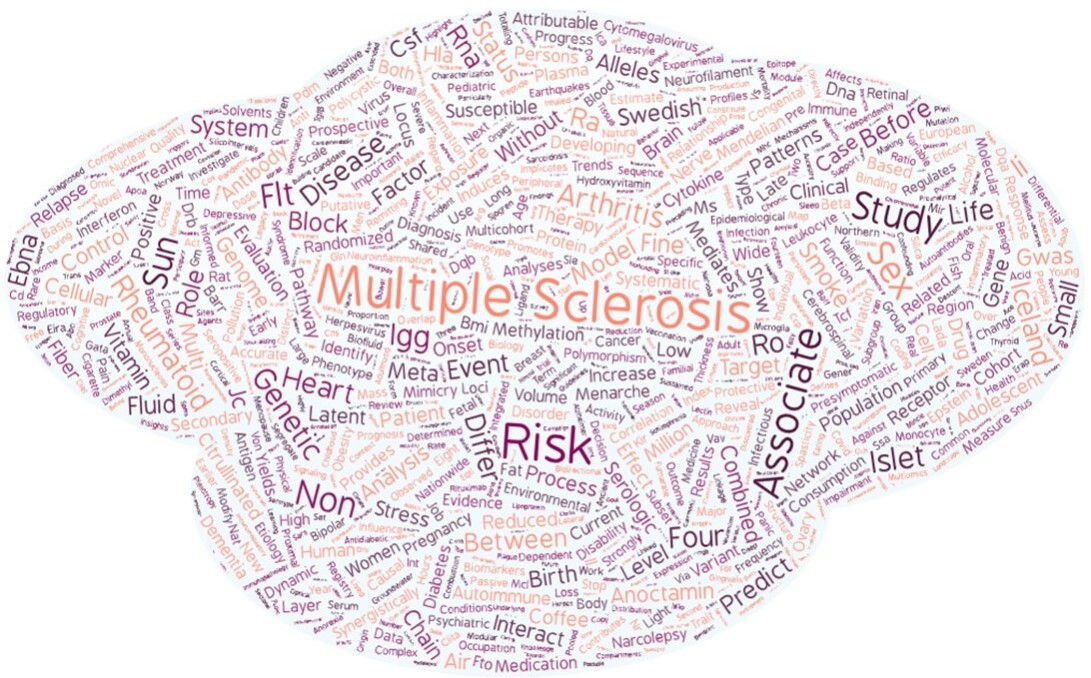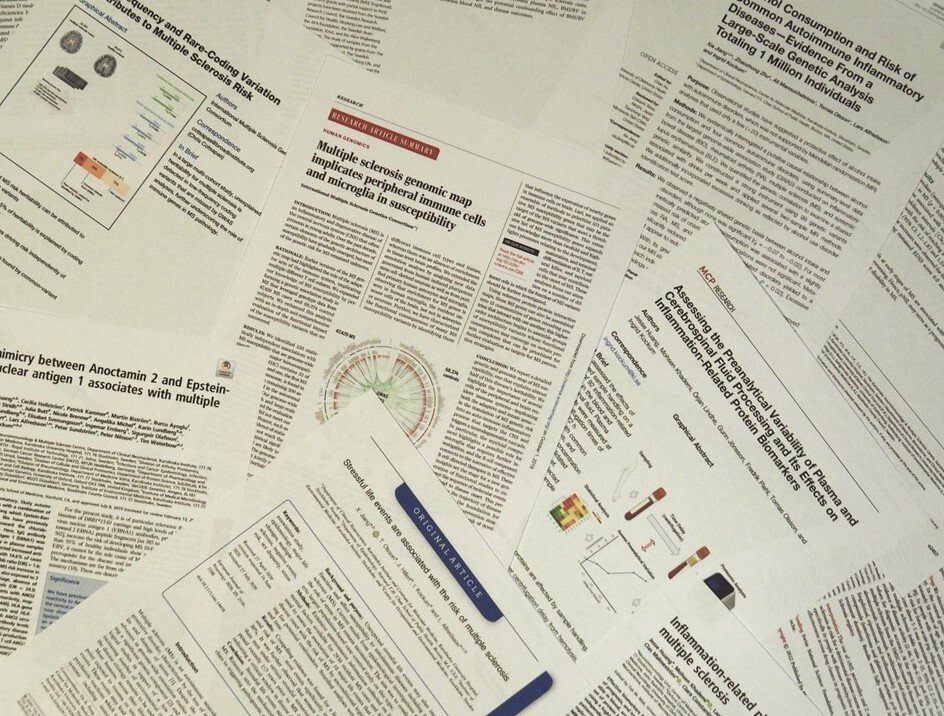Our research
We are trying to identify novel genetic risk variants for inflammatory diseases with focus on multiple sclerosis, both in collaboration with international consortia (e.g. MultipleMS and International Multiple Sclerosis Genetic Consortium) and together with industry e.g. deCODE genetics. We are using both traditional genotyping and next generation sequencing in these studies. Currently more than 230 susceptibility variants have been identified for multiple sclerosis, the major ones being in the HLA region.

We are studying how multiple sclerosis genetic risk variants interact with multiple sclerosis risk life-style exposures such as smoking, and viral infections since this pinpoints which biological processes are acting together to cause multiple sclerosis. Several such interactions have been identified as that between HLA genes and smoking. We are also Mendelian randomization to study lifestyle risk factors for autoimmune diseases.
Immune response to viral infections such herpes virus infections (e.g. Epstein Barr, Cytmegalo Virus and Human Herpes Virus 6) is altered in multiple sclerosis, it is however unclear if this is a consequence of the disease or if these viral infections themselves affect the risk of developing MS. We are trying to address this by comparing genetic risk factors for serological response to these infections and genetic risk factors for multiple sclerosis. We are also investigating molecular mimicry between viral and human proteins.
Because we have access to a uniquely large and well characterized dataset of multiple sclerosis patients, we are now embarking on trying to identify genetic and life-style exposure risk factors for progression/severity of multiple sclerosis. One of the stumbling blocks here is how to measure severity and progression. We will use a variety of measures ranging from standard measures such as EDSS, to patient reported outcomes and potential biomarkers such as neurofilament light. This work will be carried out in the MultipleMS project, a Horizon2020 funded project that is coordinated by Ingrid Kockum and Maja Jagodic. In this project we will also aim to stratify patients based on genetic and life-style exposures with the aim of identify subpopulations of patients that respond differently to different treatments to achieve personalized medicine for multiple sclerosis. We are also working with identify novel biomarkers for multiple sclerosis and these stratified patient populations.
Finally we are using the rich datasets available in different national registries for persons with multiple sclerosis and population based controls. This included healthcare usage, drug prescriptions, income and much more. We are using this data as well as lifestyle exposures and genetics to try to predict individuals at increased risk of developing mutiple sclerosis and to predict disease course so that we in future can offer advice on lifestyle changes to avoid disease and aid in better use of available treatments.
Research projects
- MultipleMS: Multiple manifestations of genetic and non-genetic factors in Multiple Sclerosis disentangled with a multi-omics approach to accelerate personalised medicine
- Role of genetic and lifestyle exposures in severity/outcome of multiple sclerosis
- Role of virus infections in risk for multiple sclerosis
- Genetic control of immune response to viral infections with focus on herpes viruses and JC virus
- Protein biomarkers for MS and MS severity
- EU-STANDS4PM: A European standardization framework for data integration and data-driven in silico models for personalized medicine
- PROPHET: A personalized prevention roadmap for the future healthcare
- Prediction of multiple sclerosis and its outcome using AI and multimodal data.


